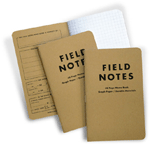by Margaret Atwood
Nan A. Talese
Buy at Powell’s »March 11, 2010
Barbara Kingsolver
Bill Cotter
Judged by
When I first held The Lacuna, and read the jacket copy, I thought of the rule that you should never title a novel after its central metaphor—by drawing too much attention to it, you suck all the air out of it. At the time I thought it seemed like ridiculous advice but it turned out to be true in Kingsolver’s novel—if the title had been something else, I wouldn’t have felt so punched by the meaning of the book.
At first glance, each of these novels seemed so different as to be impossible to compare. How to pit the qualities of a sweeping multi-character historical epic against the small, sure-footed story of a madman trying to just be right with the world and maybe get some? The answer is, it turns out, they’re both, by the end, the story of madmen, albeit very different kinds. One driven mad by the unfairness of the world, I think you could say, in The Lacuna, and the other, in Fever Chart, mad all on his own. Trying to get well, but the world is not on his side, either. One thing both books make clear is that the world isn’t on anyone’s side at all.
Both had something of a “mistake of verisimilitude”—they each tried too hard to hew to the shape of life instead of a novel, even with the aforementioned metaphor issue. I didn’t really love either novel, not the way I wanted to, and I had high hopes for both. I’m a sometime Kingsolver fan, and I’m always on the side of a debut author. When I began Fever Chart, by Bill Cotter, I got excited. I thought, “Wow, this is great prose.” But then a mysterious woman appeared and then vanished from view in what felt like a massive mistake—as in a printer’s error—and by the time she reappeared, I already was editing the book in my mind. And the book then vanished into a sequence of the character’s miseries I was hard pressed to connect together, much less get through—and yet I still loved all the sentences. It is a well-written book, but I wanted more structure to it than I got. Some readers will be more forgiving than me, I’m sure. And I welcome Cotter’s debut—he’s a talented man, and I will definitely pay attention when I see his name again. By all means, zombie round this guy if you feel more strongly than me.
 Keep your lists of books, quotes, and sketches in Field Notes Memo Books. Check our exclusive offer for ToB readers.
Keep your lists of books, quotes, and sketches in Field Notes Memo Books. Check our exclusive offer for ToB readers.Kingsolver’s book meanwhile is the great unsung gay novel of last year, maybe, in terms of the life of the man described by the efforts of the woman who could really only love him by preserving everything he wanted to throw away, the record of all his disappointments. I loved seeing how his being gay mattered and yet was not central to the novel’s plot. And I really might have loved The Lacuna more if it had been titled something like Time Cures You First And Then It Kills You, or Feast of the Kings, and I tried to read it as if either was the title (I also wanted to just cut off the first 28 pages). The Lacuna really is an important book—and with it, Kingsolver moves into territory previously held by writers like Dos Passos and Galeano, with his Century of Wind trilogy. Which I loved. It really isn’t like any of her previous novels, or most American novels, for that matter—it’s more like a South American novel about North America, if you will, in terms of the political sensibility and view of the life of a country in the lives of the people—you find yourself looking at American life from a really interesting place.
So, raise Kingsolver’s hand in the air, and advance her to the next round.
Alexander Chee is the author of Edinburgh. He is the Visiting Writer at Amherst College. Known connections to this year’s contenders: “I have a conflict with Nami Mun, who I adore and who is a good friend. John Wray and I share an agent, but I don’t know him personally—somehow that seems more personal than sharing a publisher.”